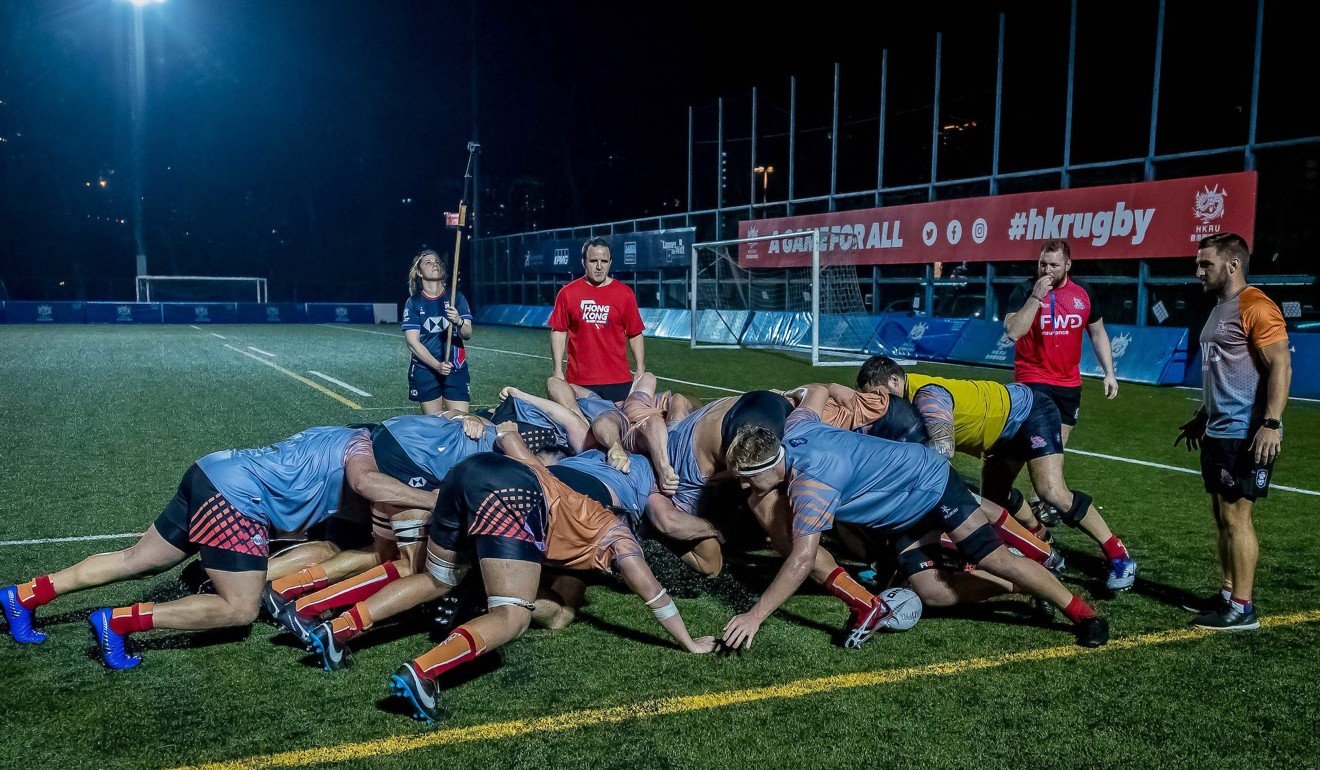
Can Global Rapid Rugby survive? Fan response to Hong Kong showcase will ring alarms
- Hong Kong got its first taste of Global Rapid Rugby last weekend, but the weather spoiled the pitch – and attendance
- Andrew Forrest’s ambitious plan is off to a shaky start, but the league still has lots of time to sort itself out
Sadly, just over 1,000 people showed up at Aberdeen Sports Ground (the venue seats 9,000). However, the freak storm the day before could be blamed in part for the poor attendance.
Hong Kong was supposed to be a slam dunk for this exciting new format, and although spectators were treated to a ramped-up version of rugby and various off-field bells and whistles, it is doomed if no one is there to witness it.
Maybe Australian mining magnate Andrew Forrest, who concocted the league partially to give his Western Force side a new place to play, should get a mulligan for the Hong Kong debut.
Hosting the game at Hong Kong Football Club in the heart of the city in Happy Valley may have doubled the crowd, but the allure of playing on grass means GRR is keeping with its ambitious nature.

Forrest’s enthusiasm is undeniable. You could see he has thrown his heart and soul into this venture as he walked around the venue chatting with various stakeholders and Hong Kong Rugby Union executives.
The guy loves rugby and is much more than a back-seat silent investor: this is his baby and he must be wondering how he can take GRR to the next level.
The three games in Perth did well, attracting nearly 10,000 fans, and the games are pulling in about 65,000 viewers on Australian TV. GRR has also landed on Fox Sports Asia and Star Sports, plus Forrest has backing from World Rugby itself.
As expected, ball-in-play numbers are up from regular 15-a-side, and the scores are higher with 209 points in the first four matches.

The real test is when the Tigers head to Singapore on April 28, a good benchmark as to where GRR is at in Asia. Singapore fans are a tough sell – its lacklustre Sevens attendance is testament to that – but if Forrest can put enough bums on seats, the light at the end of the tunnel may brighten.
Come August when the final match between the Force and an as-yet-to-be-decided team take to the field in Australia, viewers will have a pretty good indication if GRR is flying or faltering.
The rugby world will be warming its hands at the fast approaching 2019 Rugby World Cup in Japan, and if the Asia-Pacific region is not rugby crazed by then, there will be many fingers to point and people to blame.
Forrest said he went with a “showcase series” in 2019 for that very reason, as not to be blotted out by the shadow of Japan, and forced to grab second-tier players as the top hundred or so focus on the World Cup.
There’s no denying the rule changes make for more exciting rugby, largely because teams are forced to run the ball more, rather than kick for field position. Sunday’s game, hampered by poor pitch conditions and played in stifling humidity, should not be taken as a definitive representation of what GRR can offer.
GRR must find a way to thrive in hostile conditions, in an Asia-Pacific region where precipitation can ruin a field in a matter of hours, and heat can bake fans in their seats like it did last Sunday.

Regardless, betting against someone like Forrest is probably unwise. He has the burning desire and the deep pockets to carry GRR for years if needed, waiting for the league to catch fire and sprout organically.
Post-game at the Aberdeen Sports Ground he ventured onto the field in his dress shirt and trousers, expensive boots and all, braving a muddy pitch for a TV interview that sounded more like a motivational speech. It was a testament to one man’s commitment to what many are calling a far-fetched dream in an unknown, unpredictable region.
GRR may still be fragile, in its infancy and experiencing growing pains, but the seeds have been planted.

